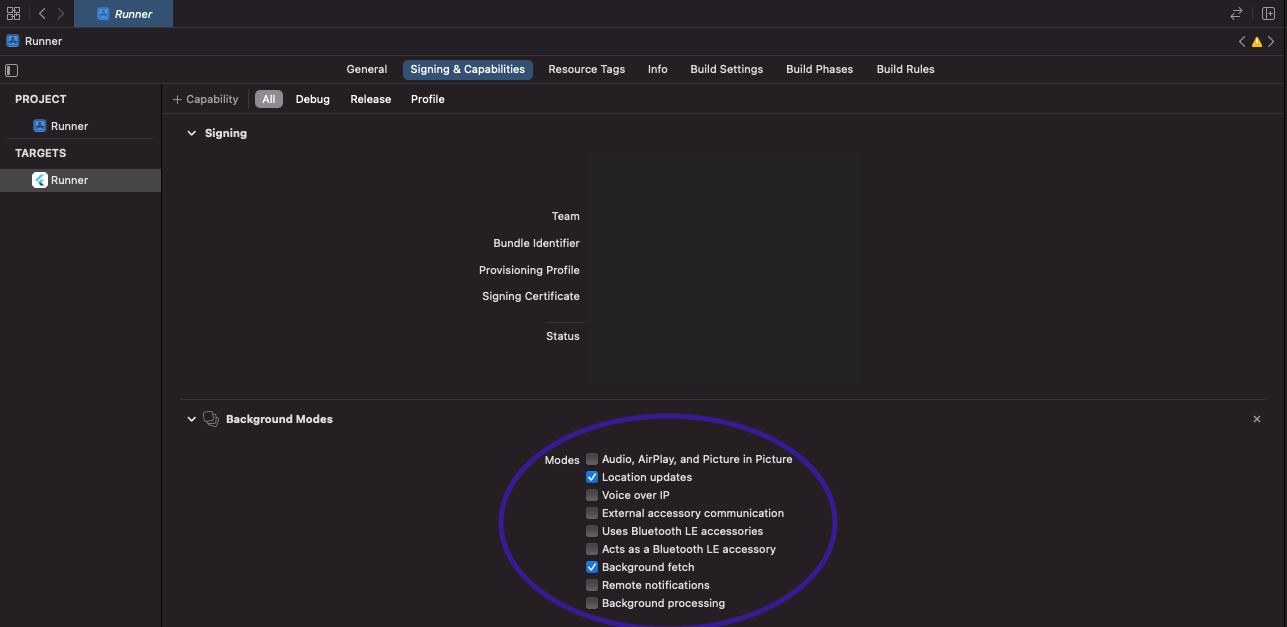The official OkHi React Native library will enable you to start collecting and verifying your user's addresses.
First you need to obtain your OkHi client key and branch ID. You can get these by signing up here. Use your sandbox keys while you test and develop, and your production mode keys before you publish your app.
This library targets android devices >= SDK 23. Make sure you're targeting at-least the same by modifying your android/build.gradle file
minSdkVersion = 23<manifest ...>
<uses-permission android:name="android.permission.ACCESS_FINE_LOCATION" />
<uses-permission android:name="android.permission.ACCESS_BACKGROUND_LOCATION" />
<uses-permission android:name="android.permission.ACCESS_NETWORK_STATE" />
<uses-permission android:name="android.permission.INTERNET" />
...
<application>
...
</application>
</manifest>If you're targeting Android versions > 8 and you're using the OkVerify library you need to make sure your users select on "Allow always" when granting permissions otherwise the verification process won't work.
OkHi obtains verification signals in the background, to enable this make sure to add "Location updates" and "Background fetch" to your Background Modes under Signing & Capabilities of your target.
All OkHi React Native libraries target ios devices >= 12. Make sure you're targeting at-least the same by modifying your both your Podfile and deployment target in xcode.
Podile located under: ios/Podfile
platform :ios, '12.0'<key>NSLocationWhenInUseUsageDescription</key>
<string>String that explains why you need when in use location permission</string>
<key>NSLocationAlwaysAndWhenInUseUsageDescription</key>
<string>String that explains why you need always location permission</string>Run the bellow command in the root directory of your React Native project.
yarn add react-native-okhi react-native-webviewFinally install all required pods by running the following command in the ios directory
cd ios/ && pod install && cd ../
Add the following initialization code to your index.js file. Replace my_branch_id and my_client_key with the keys provided to you after sign up.
import * as OkHi from 'react-native-okhi';
OkHi.initialize({
credentials: {
branchId: '<my_branch_id>',
clientKey: '<my_client_key>',
},
context: {
mode: 'sandbox',
},
notification: {
title: 'Address verification in progress',
text: 'Tap here to view your verification status.',
channelId: 'okhi',
channelName: 'OkHi Channel',
channelDescription: 'OkHi verification alerts',
},
})
.then(() => console.log('init done'))
.catch(console.log);import React, { useState, useEffect } from 'react';
import { View, Text } from 'react-native';
import { OkHiLocationManager, canStartVerification } from 'react-native-okhi';
const App = () => {
const [launch, setLaunch] = useState(false);
useEffect(() => {
canStartVerification({ requestServices: true }).then((result) => {
setLaunch(result);
}); // checks & requests for required services for verification to run
});
const user = {
phone: '+254712345678', // required
firstName: 'Julius',
lastName: 'Kiano',
};
const handleOnSuccess = async (response) => {
console.log(response.user); // user information
console.log(response.location); // address information
await response.startVerification();
};
const handleOnError = (error) => {
console.log(error.code); // user information
console.log(error.message); // address information
setLaunch(false);
};
if (launch) {
return (
<View style={{ flex: 1 }}>
<OkHiLocationManager
user={user}
launch={launch}
onSuccess={handleOnSuccess}
onCloseRequest={() => setLaunch(false)} // called when user taps on the top right close button
onError={handleOnError}
/>
</View>
);
}
return (
<View style={{ flex: 1, alignItems: 'center', justifyContent: 'center' }}>
<Text>Loading..</Text>
</View>
);
};
export default App;

